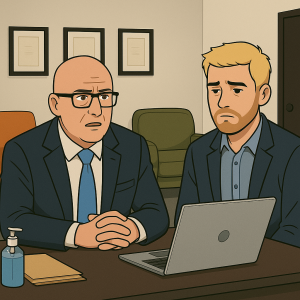1. Victim and Witness Rights
- Tennessee Attorney General – Victim Assistance
Provides guidance on victim rights, court advocacy, and information about the criminal justice process. - TN Crime Victim Compensation Program
Offers reimbursement for victims of violent crimes for medical, mental health, relocation, and lost wages.
2. Free and Low-Cost Legal Aid Programs
- Legal Aid Society of Middle Tennessee and the Cumberlands
Provides free legal help in civil matters, including protective orders, harassment, and defamation-related claims. - Memphis Bar Association – Legal Resources
Offers attorney referrals and low-cost legal assistance in Shelby County and nearby areas.
3. Relevant Laws
- Stalking: Tenn. Code Ann. § 39-17-315
What it means: Engaging in repeated, unwanted contact that causes fear for safety or emotional distress. Includes in-person and electronic stalking. - Harassment: Tenn. Code Ann. § 39-17-308
What it means: Intentional and repeated communications meant to alarm, offend, or threaten another person. Applies to texts, calls, or digital messages. - Bullying: No adult criminal statute. Covered under Tenn. Code Ann. § 49-6-4501 et seq. (Education Code)
What it means: Public schools must implement anti-bullying and cyberbullying policies with enforcement procedures, education, and reporting systems. - Defamation: Civil tort, not criminal. Based on Tennessee case law.
What it means: Victims can file a lawsuit for libel or slander if false statements cause reputational or financial harm. Defamation is not a criminal offense in Tennessee.
4. Reporting and Hotlines
- Call 911 in case of emergencies or immediate threats to safety.
- Report non-emergency cases to your local law enforcement agency or General Sessions Court.
- Tennessee Coalition to End Domestic and Sexual Violence
Statewide resource connecting survivors to shelter, legal advocacy, and counseling services. - Statewide Domestic Violence Hotline: 1-800-899-9733
Available 24/7 for confidential support and assistance across Tennessee.
5. Support Organizations
- Tennessee Coalition to End Domestic and Sexual Violence
Provides education, shelter coordination, policy advocacy, and legal aid across the state. - AVM Family Crisis Center
Offers legal advocacy, safety planning, and transitional housing for survivors in Upper Cumberland communities.
6. Civil Remedies and Protection Orders
Victims may petition for an Order of Protection through General Sessions or Circuit Court. Orders can be granted for domestic abuse, stalking, sexual assault, or harassment. Legal aid and court advocates can help complete and file forms and attend hearings.
Important Note on Jurisdiction: If the individual you are seeking a restraining order against lives in a different state, your local court may not have jurisdiction to enforce that order. In most cases, you must file for protection in the state where that individual resides or where the conduct occurred. This applies even in situations involving online harassment, defamation, or stalking. Contact legal aid services in both your state and the other person’s state for guidance.
7. Youth and School Resources
- Tennessee Department of Education – Bullying Prevention
Provides reporting systems, school district policy guidance, and resources for parents and students.
8. Court Forms and Filing Help
- Tennessee Courts – Order of Protection Forms
Offers downloadable forms and instructions for filing protective orders for stalking, abuse, or harassment.
9. Online Safety and Privacy Tools
- NNEDV Tech Safety Toolkit
Resources for managing digital security, responding to cyber abuse, and protecting online privacy.
Disclaimer: This information is provided for educational purposes only and does not constitute legal advice.




